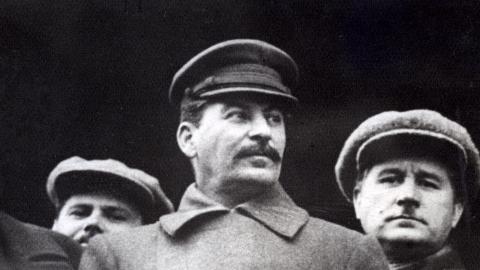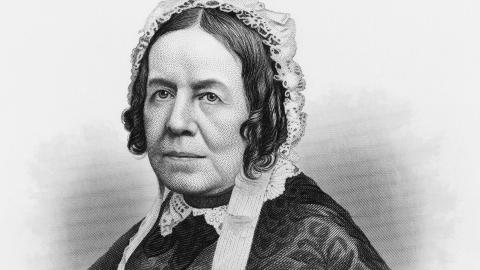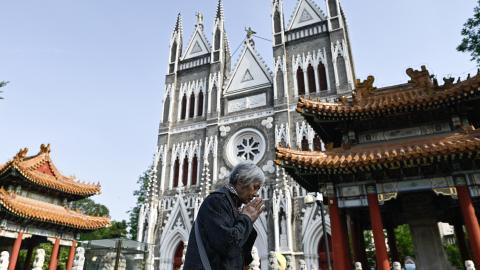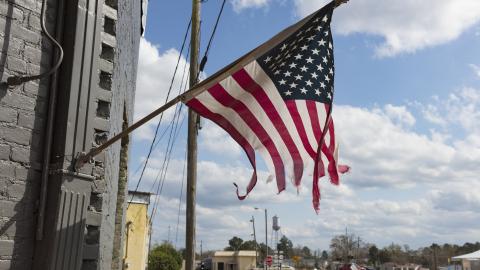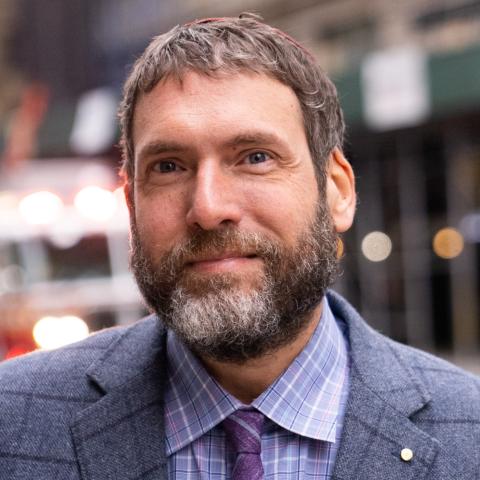One of the powerful images that came to define the Arab Spring was that of Christians and Muslims praying together in Tahrir Square in Cairo. That image helped shape the understanding of what was being portrayed as a liberal and secular uprising, one that stood in dramatic contrast to the region's eternal dichotomy of politics as a choice between the authoritarian regimes and the Islamists. As Hosni Mubarak was leaving the presidential palace for the last time, the conventional wisdom echoed from the pulpits of academia and the offices of the Obama administration was that Egypt was beginning a long-overdue transition to democracy and becoming a free society.
The myths associated with the Arab Spring are numerous, but none is perhaps more fatal than the quite modern debasement of the concept of a free society to mean, essentially, the holding of elections. The ballot box is perceived as a magical solution, from which freedom of speech, free enterprise, and religious freedom necessarily follow.
The recent massacre of Coptic Christians in Cairo is a stark reminder of the falsity of this view. After years of discrimination and attacks, culminating in the Alexandria church bombing last New Year's Eve, the Copts, while greeting the revolution with skepticism, maintained some hope that it might improve their plight. Instead, the revolution has only worsened it. Isolated and ignored by the West, the Copts can only wonder today whether, after 2,000 years, the time has come for them to pack their belongings and leave, as Egypt looks less hospitable to them than ever. Like the Jewish communities scattered in Europe during the Middle Ages, the Copts are realizing the eternal lesson of minorities' survival: Better the persecuting ruler than the mob. A ruler can be bought off or constrained by international pressure; with a mob there are no constraints.
The recent wave of violence against Copts has to be viewed and understood as part of a continuing pattern. Copts have faced three distinct threats: from Islamists, from the government, and from the general population. In the 1980s and 1990s, the Islamists posed the greatest threat: As part of their insurgency against the government in southern Egypt, they often attacked Copts. The threat was so grave in the south that many Copts sought refuge in Cairo.
The government itself engaged in rampant discrimination. Ottoman-era laws restricting the building of churches remain in force. There are no Christian school headmasters or university deans in the public schools. Egypt's Christian heritage is not mentioned in schoolbooks, and Copts are almost completely absent from the political landscape. Attacks against Copts almost always go unpunished.
Most worrisome of all, in recent years, has been the spate of attacks by ordinary Muslims on their Christian neighbors. Starting with the massacre in el-Kosheh in January 2000, recent attacks usually have not been orchestrated by Islamist groups, but have been the result of ordinary Muslims' anger at something they see as an affront to Islam's domination: the resumption of work on an old church, the building of a new one, a rumor of a sexual relationship between a Christian man and a Muslim woman, or a report of a suspected lack of respect for Islam shown by a Christian. The incident usually involves a Muslim mob's attacking Christian homes and shops, ransacking, burning, and, in some cases, killing.
The Mubarak government's reaction to such attacks only encouraged further attacks. The police never arrived in time to stop the violence, and when they did, they usually simply arrested a couple of dozen local residents, Christians and Muslims alike. The arrested Christians would serve as a bargaining chip that the government would use to force the church to keep quiet. Faced with possible harsh sentences for their people, the clergy felt that their hands were tied. They were made to participate in government-organized reconciliation sessions that gathered local Christian and Muslim clergymen and other notables, the result of which was to force the Christians to drop all charges. These gatherings would also, usually, pass some sentence on the Christian community for its apparent affront e.g., the family of a Christian man rumored to be involved sexually with a Muslim woman might be forced to emigrate from the village and pay compensation, or the Copts might be forced to abandon building a church and instead conduct their worship in an unmarked house.
After the revolution, these patterns were reinforced, and indeed attacks on Christians increased substantially. These new attacks involved the same three responsible parties. Islamists, freed from any restraining check of the police, are now free to enforce their vision on Egyptian society at large and Copts in particular. This enforcement takes the shape both of planned attacks led by Salafis and joined by the local mob, such as the May attacks on churches in the Imbaba neighborhood of Cairo, and of daily persecutions that get very little coverage in the Western press. Increasingly, Copts living in poorer neighborhoods find themselves forced to abide by certain Islamic practices or face possible punishment. In some cases, Christian girls in government schools are made to wear the hijab by the Islamist headmasters, who are now free from government control. In a very disturbing incident in October, a 17-year-old Christian student was asked by his teacher to remove the cross that he was wearing around his neck. When he refused, the teacher beat him; his Muslim classmates joined in the beating, which resulted in his death.
The government, meanwhile, evinces a continued lack of interest in protecting Christians. The solution of the Supreme Council of the Armed Forces to the burning of a church in Atfih in March was to invite Salafi preacher Mohamed Hassan to try to cool down the local Muslims. Appearing on national TV later, however, he explained that the attack was not sectarian, but was driven by the discovery of black magic conducted in the church. No attackers were ever punished. After an attack on a church in Aswan on September 30, the local governor actually encouraged the attackers: He declared on TV that the Christians were to blame for a building violation and that "our boys" had corrected the wrongdoing.
When the pressure for action becomes high, the government resorts to the old tactic of arresting Christians: Following the recent attack at Cairo's Maspero building that left some 25 Christians dead, the government arrested a number of young Christians and accused them of killing their coreligionists. Criminal proceedings were also initiated against two priests, Fr. Mittias Nasr and Fr. Philopatear Gamil, who had helped organize local Christians to demonstrate peacefully for their rights. Father Gamil is now in hiding.
For Christians in Egypt, the participation of the general Muslim population in these attacks is the greatest threat to their future. It is not that their neighbors want them dead; they just want the Christians to live, permanently, as second-class citizens. Any attempt by the Copts to break the chains of dhimmitude and act as equals is seen as an affront to the supremacy of Islam in its own land. What fueled the attack on the Aswan church, for example, was not that Christians wanted to pray; they can do so, as long as the building in which they do so is not a church. The local Muslims' demands were that the building have no bells, no microphones, no crosses, and no domes. What instigated the attacks on the Christians during their march, before they were brutally killed by the army, was their chants of "Raise your head up high, you are a Copt" and their raised crosses. In the new Egypt, you can exist as a Copt, but you are not allowed to be proud of that fact. You will be allowed to survive, but you must show your submission to the religion of the majority and recognize your inferior status.
Faced with these hardships, it is no surprise that the Copts are questioning whether there is a future for them in the new Egypt. The younger members of the ancient community refuse to accept the inferior status that their parents accepted. They refuse simply to disappear, as many ancient communities in the Middle East have done in the last century. They will continue to raise their heads up high with their crosses, but they will not succeed. They number 8 million. Their small percentage in the overall population and their lack of a geographical concentration, combined with Egypt's geography itself, make their chances of offering a substantial resistance minimal. Their plight is further worsened by their isolation from Western Christendom. After their break with the Catholic Church in 451 over the nature of Christ, the Copts fearing an agenda of forced conversion remained skeptical of any approaches from Catholicism. Western colonialism further deepened their suspicions. Unlike the French in the Levant, who favored minorities, the British in Egypt attempted to limit the Coptic presence in the bureaucracy.
The most likely outcome, then, is a wave of emigration. Like the Jews before them, the Christians of the Middle East will be driven out of their homes, but, unlike the Jews, they will not have an Israel to escape to. The most fortunate will take the first planes to the U.S., Canada, and Australia, but a community of 8 million people cannot possibly emigrate en masse in a short time. The poorer Copts, the ones who face daily persecution, will be left behind. For them, the winter has already arrived, and it will be cold and long.


